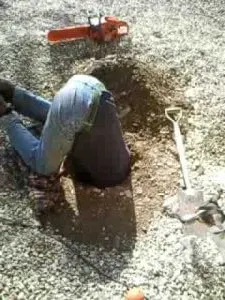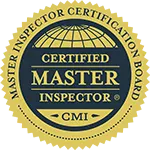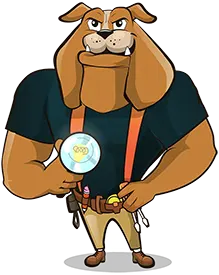Why Get A Home Inspection?
After spending years helping thousands of families save millions of dollars – not to mention their minds, I’m still surprised when I hear this question.
It usually comes up in one of three scenarios:
- Either the house is brand new (so obviously nothing can be wrong)
- They have a friend or family member who can look it over
- Or they just don’t think a home inspection is useful (which is crazy)
Regardless, a home inspection is one of the smartest investments you can make when buying a new home.
Here’s why.
First, you’re spending tens of thousands of dollars (sometimes hundreds of thousands and even millions) buying a house you know nothing about so you and your family can turn it into a home.
And even though it looks simple on the surface, it’s an engineering feat behind the glossy finishes.
It’s a complicated collection of systems that occasionally get damaged or break down over time. And because most of them are hidden inside walls, above ceilings, behind insulation or behind personal items, you might not see what’s lurking out of sight.

But a professional home inspector is a highly trained and conditioned professional whose only job is to understand the inner workings of your home.
So they not only spot problems you can see but also ones you can’t.
This is serious business that takes years to master.
Even a brand-new house will have problems after you move in. They’re usually small, but they can turn into BIG headaches later. Things like:
- a cut corner
- something missed
- something loose
- something broken
- something that binds
- something that could have been done better
- something that should have been done differently
- something leaking
Because there’s just no such thing as a perfect house.

The professional home inspector also understands the factors that go into determining your home’s overall condition by also accounting for its age, location, style, circumstances, and history.
Incorporating these factors into the findings takes years to master.
And even if your friend or family member is a contractor or tradesperson, they simply lack the training, skill set, and conditioning it takes to find and diagnose the problems in and around your home.

Then a professional home inspector will rank their findings in order of importance so you can quickly decide what you can and can’t live with so you can move forward with the purchase, walk away or negotiate a lower price with your seller (often saving you thousands of dollars).
NEXT, A PROFESSIONAL HOME INSPECTOR WILL PUT THEIR FINDINGS IN AN EASY-TO-READ REPORT THAT LETS YOU CLEARLY SEE WHAT’S WRONG.
Third, unlike the friend or family member, a (truly) professional home inspector is an unopinionated objective observer.
You’ll never have to worry about their opinion clouding their judgment – or yours – or try to steer you one way or another.
Fourth – and arguably most important – if there’s a problem with your home after you move in, you’ll have a trained professional to call for help.
Because no matter how thorough or experienced someone is, things occasionally get missed or problems pop up later.
It’s just a fact. And if this does go wrong for you, the best thing to do is first, not take it personally. Then give your home inspector a call to work out a reasonable solution.
Remember, no one is perfect and they’ll be willing to help.
Finally, getting a professional home inspection gives you a chance to receive an education in the finer points of your new home.
Take advantage of it by showing up, getting involved, and bringing your questions – even follow your inspector around the house (but hold your questions to the end – they’re trying to focus).
So never skip the home inspection.

When it comes to something as important as your home, you shouldn’t take a chance with someone less qualified. They’ll never be able to replace the intuition, experience, and knowledge of an experienced, professional home inspector.
The confidence, peace-of-mind and wealth of information they’ll give you not only lets you negotiate the best deal, but also helps you avoid problems after you move in.











